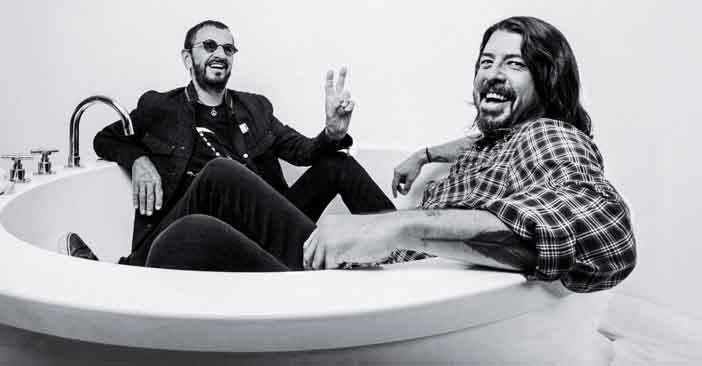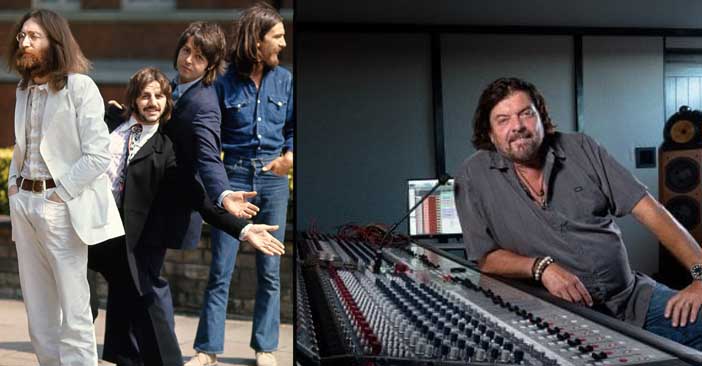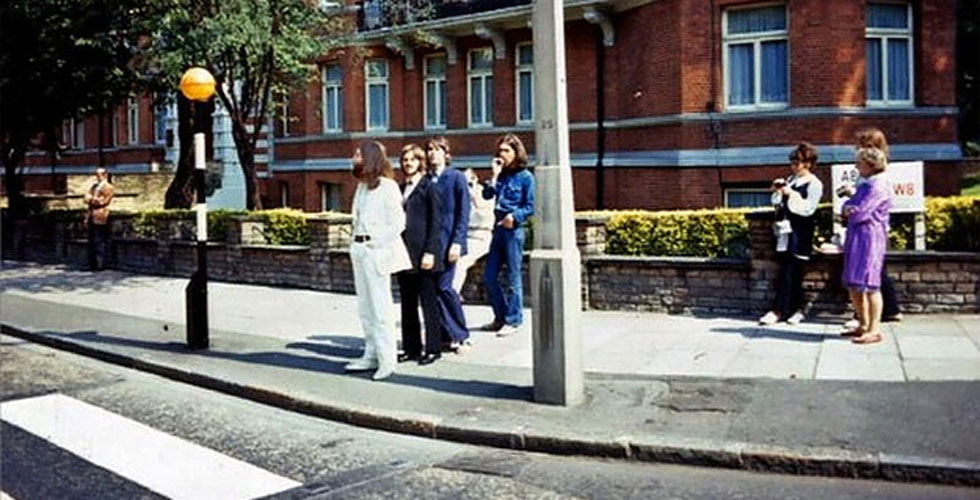“We were holding it together,” McCartney said. “The music was OK and we were friends enough that, even though this undercurrent was going on, we still had a strong respect for each other even at the very worst points. It was getting fairly dodgy — but those weren’t the worst times, funnily enough. We put together quite a nice album, and the only arguments were about things like me spending too long on a track: I spent three days on ‘Maxwell’s Silver Hammer.’”

Ringo’s Production Bubble
Alan Parsons: “Octopus's Garden was the second song ever to be composed by Ringo Starr. The idea for the song came about when Ringo was on a boat belonging to Peter Sellers in Sardinia in 1968. The boat's captain told Starr how octopuses liked to travel along the sea bed picking up stones and shiny objects with which they would build their gardens. The story obviously resonated with Ringo. I remember him blowing bubbles through a straw into a glass of water to get the Octopus sound effect. I must confess this isn’t my favourite song in the Beatles oeuvre….”

The Beatles' Her Majesty Was Supposed To Be Deleted
Alan Parsons: “When assembling the three-track medley that would appear on Side 2 of Abbey Road, the song Her Majesty was originally tucked in between Mean Mr Mustard and Polythene Pam. McCartney decided to remove the song, so engineer John Kurlander – having been told never to throw anything away – stuck it in 20 seconds after the close of The End, which was then accidently left on an acetate made up from that tape. When McCartney heard the acetate he actually decided he like the way it worked in that context, and so it remained the final cut.”
Abbey Road Was Almost Named After A Pack Of Fags, Not The Studio
Alan Parsons: The album’s working title was actually Everest, named after the cigarettes that sound engineer Geoff Emerick smoked at the time. The band planned on taking a private jet over the foothills of Mount Everest to shoot the cover photograph, but as they became increasingly eager to finish the album, Paul suggested that they should just go outside and take the cover photo there and then. Thus the Abbey Road crossing photo shoot came about and the renaming of the album after the street on which the shoot, and recording, had taken place.”
Hammer Time And Scissor Cuts With The Beatles
Alan Parsons: "Ringo used an actual hammer and anvil for Maxwell's Silver Hammer, which also had an experimental intro that involved reversing the tape and using tape echo. On Here Comes the Sun, Geoff Emerick placed editing tape on the master to give a flutter effect to the keyboard sound. The mix for I Want You (She’s So Heavy) didn’t get faded out. I specifically remember John Lennon telling me to ‘just cut the tape’ – literally – instructing exactly where to cut the end, which I did with scissors, which accounts for the dramatic abrupt ending.”













